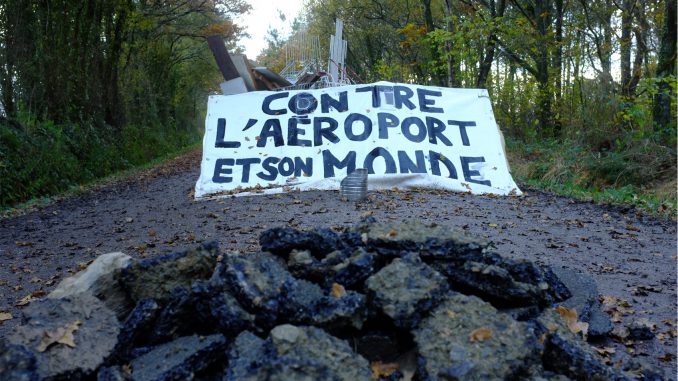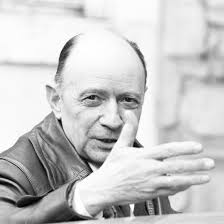
I have to admit that I sometimes feel ideologically dislocated from prevalent thinking in anarchist circles.
Although I have no quibbles with most struggles and political positions taken by my comrades at home or abroad, I am aware that the thinking behind my ideological position is very different from that of others in the same general “movement”.
This is peculiar, because I am also very conscious of the fact that my personal philosophy is very much built on anarchist foundations.
I find myself concluding that the problem must simply be that other anarchists haven’t fully understood what anarchism means and implies, and so I have set out, time and time again, to clarify what, for me at least, is the essence of the philosophy.
José Ardillo, a Spanish writer who shares many of the same ideas as me, takes a quite different approach to this ideological dislocation – in many respects the complete opposite of my own approach.
Although close to the anarchist movement, which has been so influential and historically important in his own country, he regards it as fundamentally compromised by an over-attachment to the old nineteenth century ideal of progress, of human liberation made possible by technological advance.
With this in mind, he reaches out, tentatively, towards the possibility of another revolutionary current, an underground stream of thought which is not always visible to us, but which could provide us with a healthier and less contaminated source of ideological inspiration.

I have just finished reading his book La Liberté dans un monde fragile : Écologie et pensée libertaire (Paris: L’Échappée, 2018) – the title translates as Freedom in a Fragile World: Ecology and Libertarian Thought.
In these essays, originally published in Spain, Ardillo reassesses the legacy of a wide range of thinkers, including William Godwin, Peter Kropotkin, Elisée Reclus. Gustav Landauer, Hugo Ball, André Prudhommeaux, Lewis Mumford, Jacques Ellul, Ivan Illich, Murray Bookchin and Aldous Huxley.
Ardillo detects a definite trend for anarchist thinkers, from Godwin to Bookchin via Reclus and Kropotkin, to fluctuate between a love of nature and a “technological optimism” , leading to a fractured understanding of the realities of contemporary society and the basis of a future revolution.
Historically, he says, anarchists have tended to accept a “scientific ideal of progress inherited from bourgeois ideology”.
Ardillo is clearly frustrated that the thinking of someone like Ellul, with his nuanced identification of Technique (rather than simply technology) as a tool of social domination, was never absorbed into the anarchist “mainstream”.
His analysis could usefully have been combined with the Situationist critique of the Société du Spectacle, feels Ardillo, if only the Situationists had been prepared to put aside their objections to his Christian faith.
Instead there was a separation into two currents. One includes the Situationists, Herbert Marcuse and the Frankfurt School and, later, Bookchin. The other current, embracing Ellul, Bernard Charbonneau, Illich and Mumford, has heavily influenced radical ecology in France but is less significant internationally.
Dreaming of a revival and expansion of this partly-lost current, Ardillo muses: “The work of Ellul, alongside that of Charbonneau, Ivan Illich, Günther Anders, Karl Polanyi, Lewis Mumford, Theodore Roszak, Paul Goodman and of others as well, could prove a source of inspiration for a transformative movement to come, whose main object would be to develop human freedom in a context of respect for other species and for life on the planet as a whole”.
It’s worth stressing that Ardillo’s self-distancing from the main flow of the anarchist movement does not represent a retreat away from revolutionary change towards some kind of reformism.
On the contrary, he thirsts for a deeper, more fundamental, resistance to the all-controlling artificiality of the industrial capitalist system.

Describing Ellul’s approach, he writes: “For him, the revolutionaries of May 1968 targeted mirages of power which had already been discredited by modernity itself – the real structures of the system remained intact. The type of revolt he envisages therefore demands a radical questioning of the way of life in developed societies… The necessary revolution demands the creation of new values, because all morality has been swept aside by the advance of technical society. And, for him, there has to be a break with a large part of our revolutionary heritage, so we can go back and begin again from a new starting point.”
There is certainly a problem today with “anarchist” or “left-wing” thinking which seems to fundamentally accept industrial capitalist society, and its vision of the future, as a given.
It falls back impotently into a “radical” reformism, asking for the capitalist slave-system to be more inclusive, tolerant and liberal, rather than aiming to overturn it and replace it with the other world we once all knew was possible.
As Ellul declared in De la révolution aux révoltes: “The myth of Progress has killed the revolutionary spirit and the possibility of becoming conscious of the current revolutionary necessity”.
Ardillo says the idea, or maybe ideal, of rebellion can itself form an important part of this necessary resistance.
“Ellul considers the act of rebellion as a moral imperative. Beyond all else, we have to revolt against current society in its entirety, oppose and deny it. In itself rebellion appears to be an absurd act, because there is no guarantee that it will succeed, but it’s exactly this which transforms it into an act of value. Most importantly of all, the revolution has to take on the real structures of this society, in other words Technique and the State, the twin pillars of domination.”
Resisting contemporary society necessarily involves combatting the ideology it uses to dominate our minds, says Ardillo – “consumerist hedonism, autonomy seen in a merely individualist sense, the quest for happiness and well-being at any cost”.
He also cites movements battling against infrastructure development (airports, roads, high-speed rail lines etc), those who seek out land and self-determination and those building networks of mutual aid as all playing important roles in building “a future movement which, as it gathers strength, could constitute a real opposition”.
A real opposition to capitalism. Now there’s a good idea!

Leave a Reply